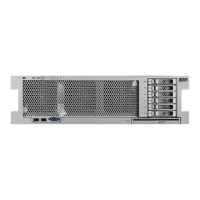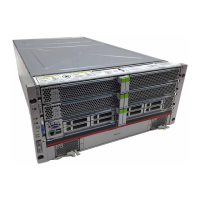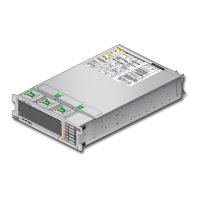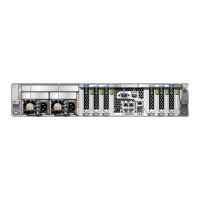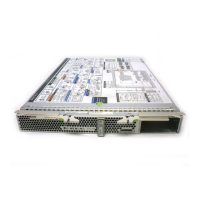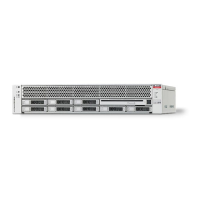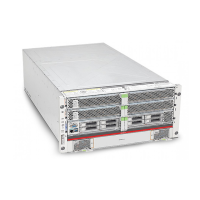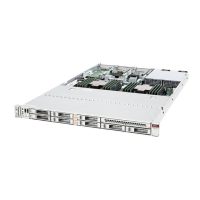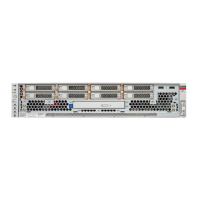Interpreting LEDs
No. LED Icon or Label Description
2 Service Action
Required LED
(amber)
The fmadm faulty command provides details about any faults that cause this indicator to
light. See “Identify Faulted Components” on page 31.
Under some fault conditions, individual component fault LEDs are lit in addition to the
Service Action Required LED.
3 Power OK LED
(green)
Indicates these conditions:
■ Off – Server is not running in its normal state. Server power might be off. The SPM
might be running.
■ Steady on – Server is powered on and is running in its normal operating state. No
service actions are required.
■ Fast blink – Server is running in standby mode and can be quickly returned to full
function.
■ Slow blink – A normal but transitory activity is taking place. Slow blinking might
indicate that server diagnostics are running or that the server is booting.
4 SP OK LED SP Indicates these conditions:
■ Off – AC power might have been connected to the power supplies.
■ Steady on, green – SPM is running in its normal operating state. No service actions
are required.
■ Blink, green – SPM is initializing the Oracle ILOM firmware.
■ Steady on, amber – An SPM error has occurred and service is required.
5 Fan Module Fault
LED (amber)
FAN Indicates these conditions:
■ Off – Steady state, no service action is required.
■ Steady on – A fan module failure event has been acknowledged and a service action
is required on at least one of the fan modules.
6 CPU Fault LED
(amber)
CPU Indicates these conditions:
■ Off – Steady state, no service action is required.
■ Steady on – A fault has been detected on one or more host processors.
7 Memory DIMM
Fault LED
(amber)
MEM Indicates these conditions:
■ Off – Steady state, no service action is required.
■ Steady on – A fault has been detected on one or more DIMMs.
8 Server Power
Supply Fault LED
(amber)
PS Indicates these conditions:
■ Off – Steady state, no service action is required.
■ Steady on – A fault has been detected on one of the two power supplies.
9 Server Overtemp
LED (amber)
Indicates these conditions:
■ Off – Steady state, no service action is required.
■ Steady on – A temperature failure event has been acknowledged. A temperature limit
has been exceeded and a service action is required.
Detecting and Managing Faults 37
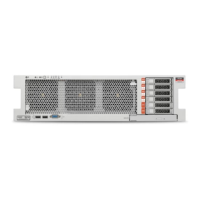
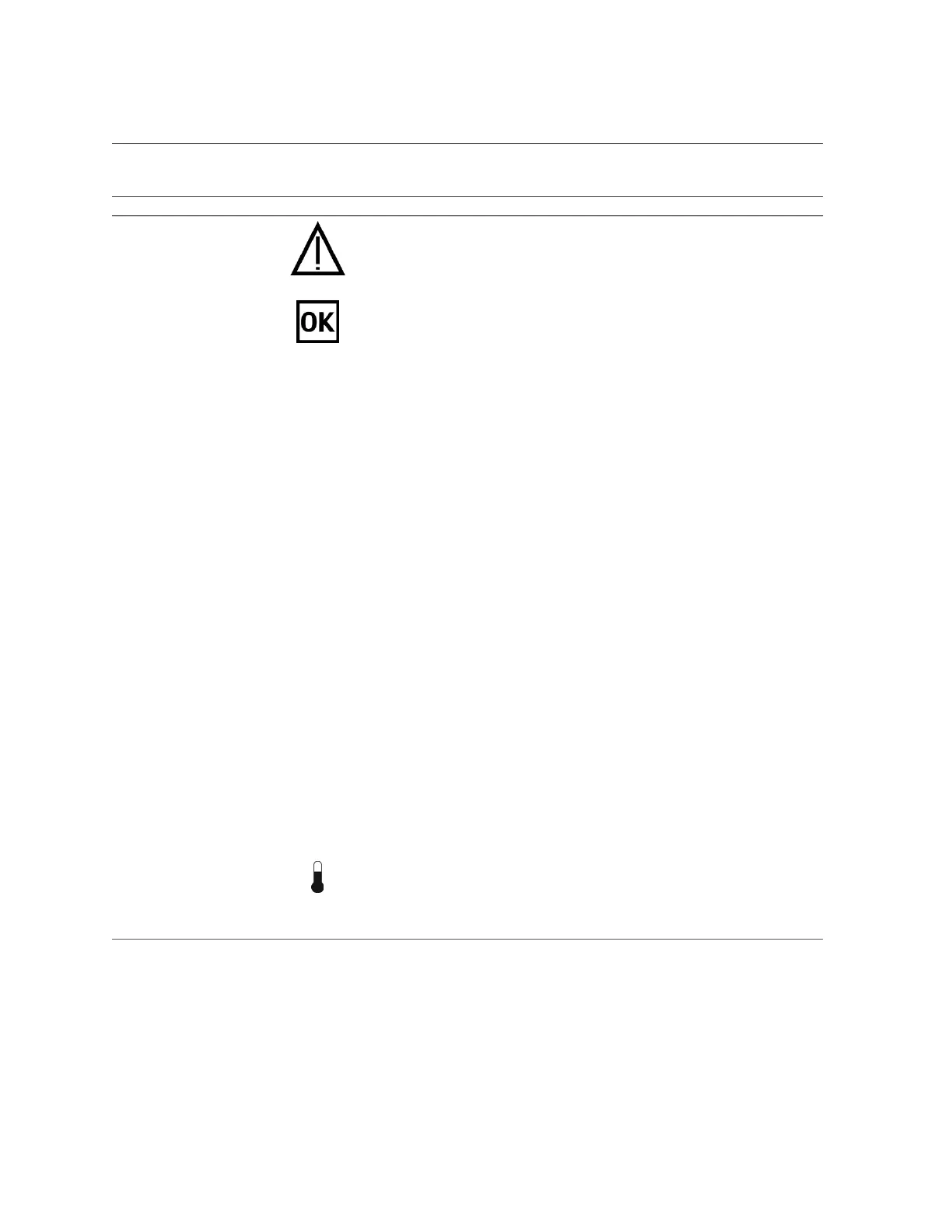